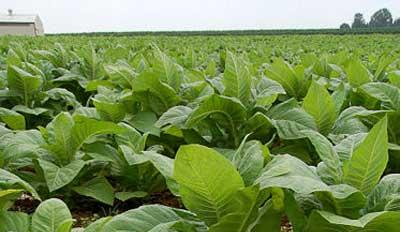
TOBACCO Industry and Marketing Board (TIMB) and tobacco merchants have established a Sustainable Afforestation Association (SAA) to spearhead reforestation across the country.
By Elias Mambo
The programme is meant to counter massive deforestation that is taking place as a result of the increased number of small scale tobacco farmers.
The merchants were expected to contribute an amount equivalent to 1,5% of total tobacco sales for the whole season.
In an interview on the sidelines of the Zvimba project tour last week, SAA chief executive officer Maggie Okore said her organisation embarked on a massive reforestation programme which would see 4000 hectares of new woodlots being planted by the end of the year.
“We have come up with a model in which we are engaging farmers with leases so that we plant woodlots and then leave the woodlot only after three harvests,” Okore said.
“Currently we have planted 250 hectares in Zvimba, 50 hectares in Kadoma and 252 hectares in Featherstone.
“We are a drop in an ocean but this small step will go a long way in assisting the national crisis because in five years’ time there will be no trees to talk about if the problem is not abated.”
- Chamisa under fire over US$120K donation
- Mavhunga puts DeMbare into Chibuku quarterfinals
- Pension funds bet on Cabora Bassa oilfields
- Councils defy govt fire tender directive
Keep Reading
SAA Mashonaland West regional manager Lloyd Mubaiwa said this year alone more than 88 000 small scale tobacco growers used unsustainable fuels to cure their tobacco.
“Imagine 88 000 small scale tobacco farmers cutting down trees to cure close to 110 000 hectares of tobacco that was planted this year,” Mubaiwa said.
“Very soon there will be no trees as the number of small scale tobacco growers continues to increase every year.”
In a joint venture with Rothwell Farm in Zvimba, SAA has planted over 1,5 million trees since February this year.
“We have a plantation with 1,5 million trees and we hope by year end we would have planted the remaining 250 hectares,” said Mubaiwa.
Mubaiwa said the trees would be harvested after seven years. But he was optimistic that the communities were now realising the importance of replacing trees.
“We are calling upon government to introduce serious measures that will ensure that small scale tobacco growers are awarded a certificate proving that they have used sustainable fuels to cure their tobacco before it can be auctioned,” said Mubaiwa.
According to Forestry Commission data released recently Zimbabwe is estimated to have lost 15% of its tree cover in the last 15 years due to deforestation with experts saying at the current rate of loss, the sobering thought is that the country risks turning into a desert in just 35 years.











